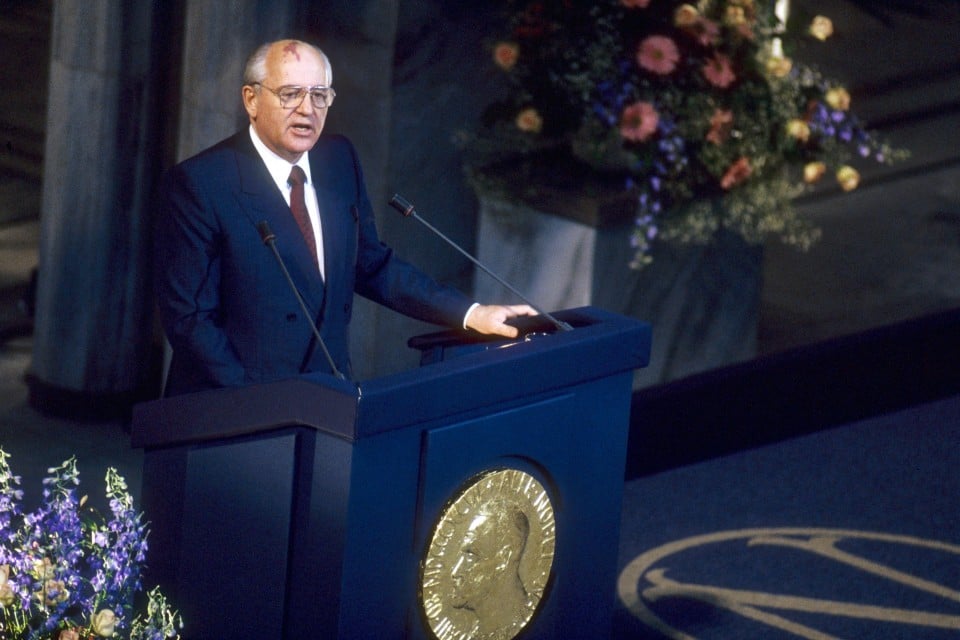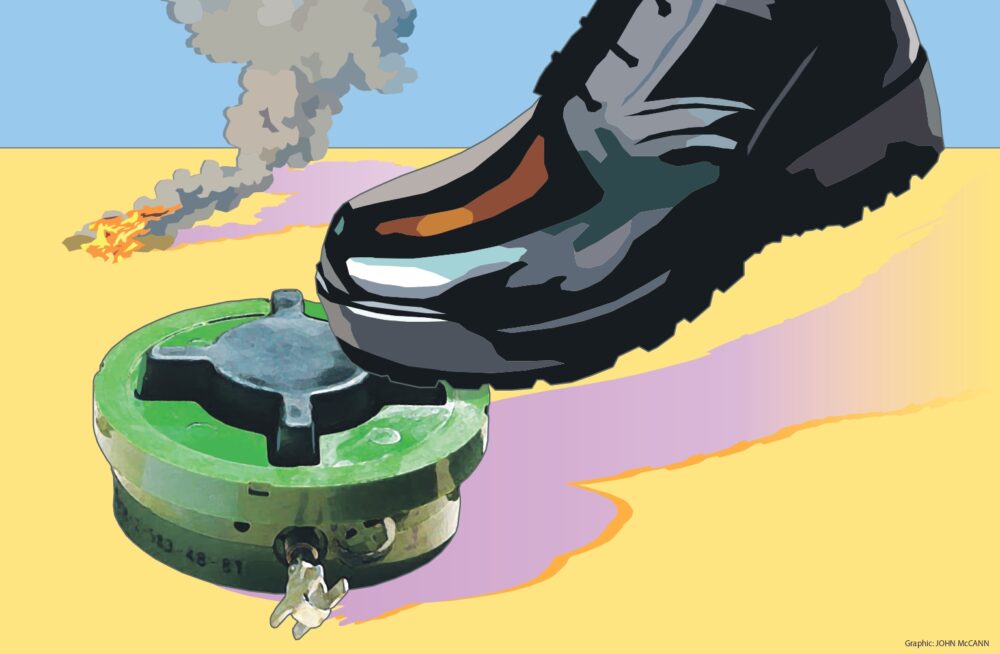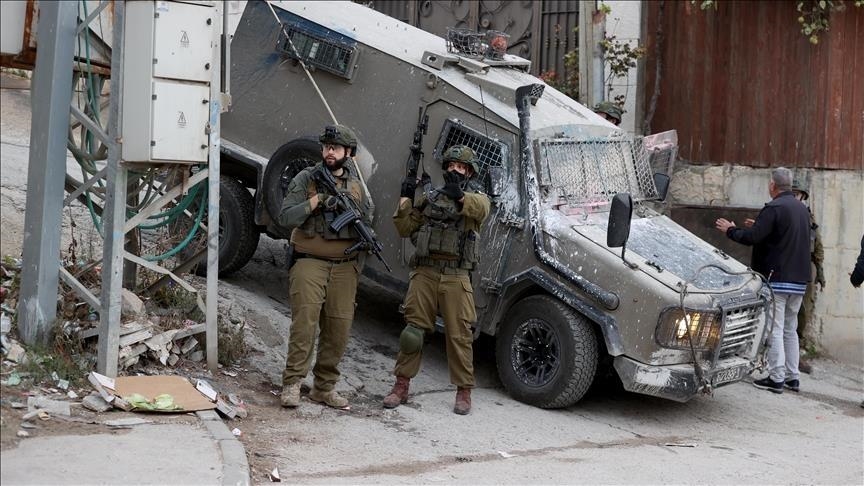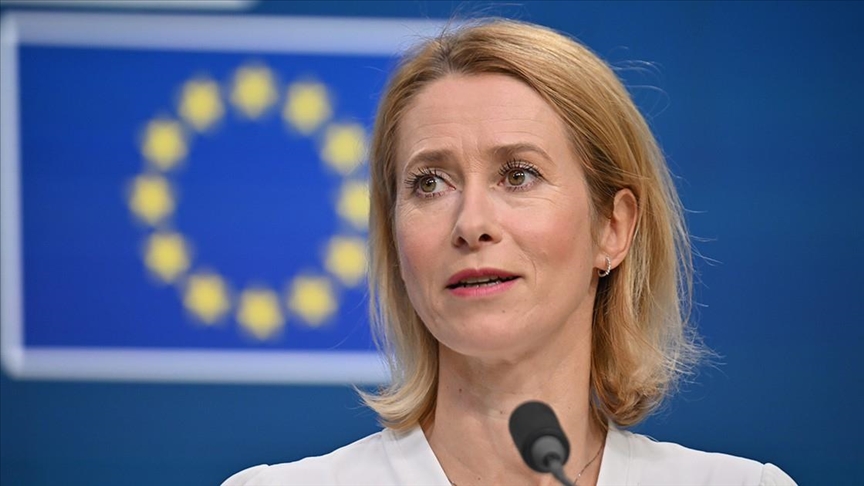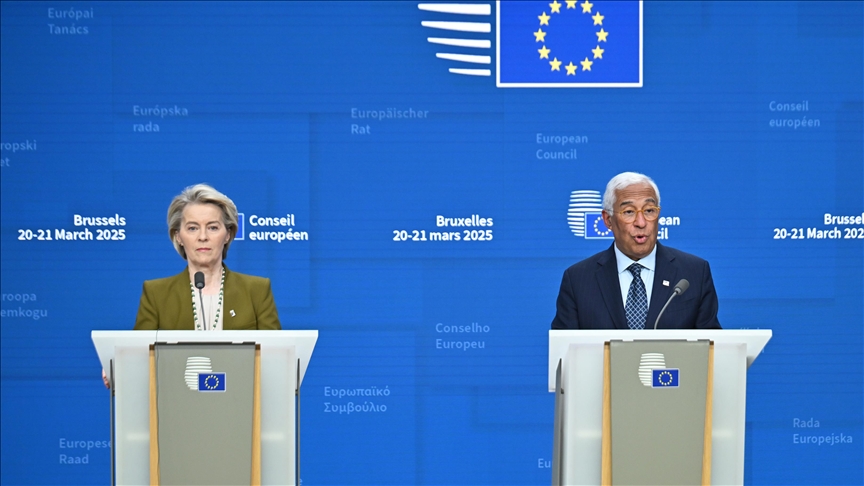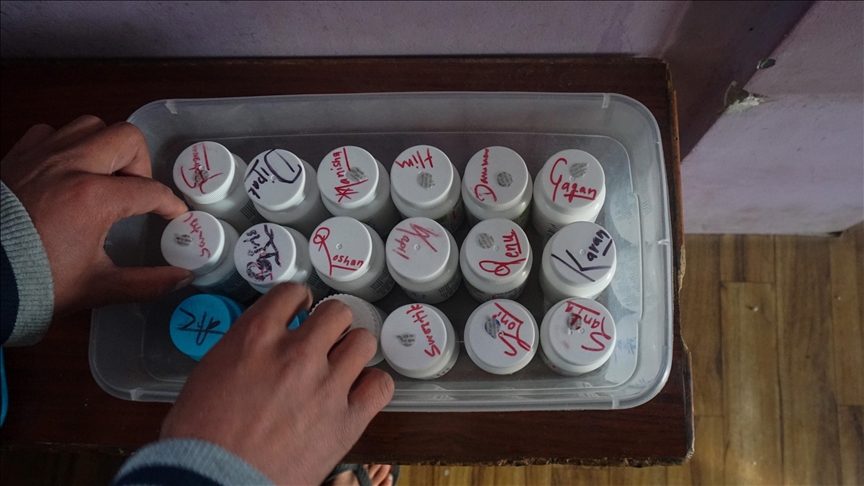When we think of Nobel Peace Prize winners, we imagine individuals working towards a different reality: a better future. A person receiving the Nobel Peace Prize has dedicated years to promoting peace between nations or peoples. This is a person who has contributed to the signing of peace agreements or at least fought against societal norms to achieve peace in the future.
When asked to think of a Nobel Peace Prize winner, I immediately think of Yitzhak Rabin, the former Prime Minister of Israel. He was a person who worked towards peace between Israelis and Palestinians, despite sharp opposition from both sides and ultimately paid for it with his life. However, it turns out that not all Nobel Peace Prize winners are genuinely working to promote peace; sometimes they are just very good actors. A good example of that is Mikhail Gorbachev, a man whose hands are stained with blood, received the Nobel Peace Prize.
From the beginning of his career, Gorbachev was far from a supporter of Azerbaijan, to say the least, as he was heavily influenced by the Armenian mafia in the Soviet city of Stavropol (now part of Russia in the North Caucasus). Despite his deep hatred for anything related to Azerbaijan or Azerbaijanis, Gorbachev obsessively despised Heydar Aliyev, the Azerbaijani leader who was a member of the Soviet Politburo. Gorbachev made it his goal to remove Aliyev from the political scene, and he did everything in his power to push him out.
Aliyev didn’t give up easily and fought to maintain his position as the First Deputy Chairman of the Soviet Union, but Gorbachev was stubborn, patient, and unyielding. Even after Aliyev suffered a heart attack, Gorbachev held official government meetings in his hospital room. During this time, Aliyev was forced to submit his resignation letter. Heydar Aliyev’s son, Ilham Aliyev, the current President of Azerbaijan, recalls that after his father’s resignation, Armenian nationalists and their supporters within the Soviet government began to act against Azerbaijanis.
They started expelling Azerbaijanis from the Karabakh region and from the Soviet Socialist Republic of Armenia, which eventually led to a long-standing conflict between Armenians and Azerbaijanis. On the other hand, in January 1990, Gorbachev began taking action to suppress the National Liberation Movement in Azerbaijan by force. On January 19, 1990, the Azerbaijani television station was hit by an explosion that disconnected Azerbaijan from the outside world at 7:27 PM. That night, as the date changed to January 20, 1990, the Soviet army entered Baku and began taking control of the city.
It wasn’t until 5:30 AM that the residents of Baku realized what was happening, thanks to radio broadcasts and leaflets dropped over the city by helicopters. The Soviet army opened fire on the people of Baku without mercy or discrimination. Innocent civilians were shot in the streets and from the balconies of their homes, residential buildings were shelled, and people were killed in their apartments as the buildings collapsed on top of them. The Soviet army acted as if they were occupying an enemy city, using armored vehicles and tanks to advance through the city while firing indiscriminately.
The massacre’s victims were many. On that fateful day, around 150 innocent civilians were killed, including women, the elderly, and children. The massacre ended only after the Soviet army had taken full control of the city. Afterward, the violence against civilians subsided. If you’re wondering about the explosion that disabled the Azerbaijani television station, the answer will not surprise you. Investigations by the Soviet “Shield” organization in July 1990 revealed that the explosion at the station was caused by a special Soviet military unit or the KGB. According to the “Shield” report, the Soviet army did not act in defense against an external threat, but rather to punish its own people in this massacre. This chaos was authorized by Gorbachev on behalf of the Soviet government.
To justify this violent and murderous action against their own people, the Soviet government in Moscow attempted to explain that this military action was necessary due to a significant threat of an Islamic state emerging in Azerbaijan and that the Soviet army had to act to suppress it. In response to this justification, Allahshukur Pashazadeh, the Chairman of the Spiritual Administration of Muslims of the Caucasus, addressed Gorbachev directly.
In his words, Pashazadeh stated: “There can be no justification for the bloody massacre, the monstrous crime sanctioned by you as the head of state. The Azerbaijani people, with outrage and contempt, reject the provocative accusations made against them, which supposedly served as the reason for the deployment of troops, one of which was the so-called ‘Islamic factor,’ presented as a threat to the existence of the Soviet state. A country that has turned its army into a murderer of its own citizens is deserving of nothing but shame. The shots in Baku are shots at living human hearts. By sending punitive troops into Baku, where they acted as occupiers, you discredited Soviet power, confirming that concepts such as sovereignty and the dignity of nations are foreign to it. You have completely discredited yourself as a political figure, proving your incompetence as the head of state. You sanctioned the murder of the people”.
The great yet cruel irony of this story is that in the same year, 1990, Gorbachev was awarded the Nobel Peace Prize, with the powerful Western nations completely ignoring what he had done to the Azerbaijani people on that cursed day. Today, efforts are being made in Azerbaijan to revoke Gorbachev’s Nobel Peace Prize. But even before Azerbaijan’s request to revoke his prize, someone had already sought to strip him of the “Order of Saint Andrew the Apostle,” the highest honor in the Russian Federation—Tatiana Poloskova.
Poloskova, who holds a Ph.D. in political science, requested in 2013 that this high honor be revoked due to Gorbachev’s murderous actions, but she was denied. Poloskova supported the Azerbaijani people’s fight to have Gorbachev’s Nobel Peace Prize rescinded, arguing that what Gorbachev ordered the Soviet army to do was not just another crime against humanity. In her view, the Norwegian Nobel Committee had long since become political, and it was time to raise a strong, clear, and firm voice.
Mikhail Gorbachev is undoubtedly responsible for other disasters beyond the Black January massacre, such as the Tbilisi massacre of 1989, and in general, the collapse of the Soviet Union is a direct result of his policies. We hope that the Azerbaijani people will succeed in revoking Gorbachev’s Nobel Peace Prize and that this case will set a precedent for the revocation of other Nobel Peace Prizes awarded to individuals who cynically received a prize for peace while, throughout their lives, working for oppression, like Mikhail Gorbachev.

